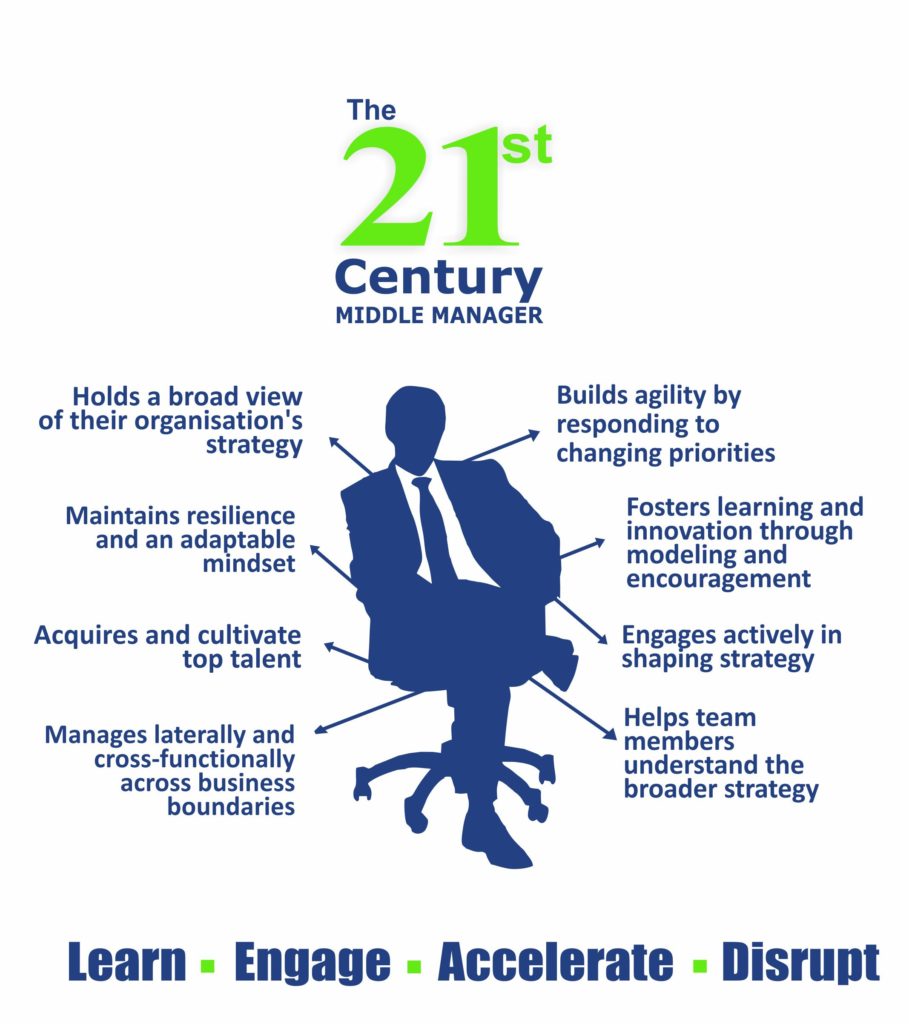The Premise
Leading from the Middle
There is a growing recognition that middle managers play a pivotal role within an organisation and hold the key to long-term organisational performance and success. Juggling the demands of senior leaders above them and the needs of the people they are managing, middle managers are responsible for executing plans, leading teams, and directing the collective efforts of all to produce results. Networked throughout the organisation, middle managers understand the operations and processes within and are in direct contact with both the executive leadership and front-line employees and clients.
Mid-level managers wield significant influence in the organisation, and often have the largest spans of control: managing multiple teams, accounting for large budgets and developing talents. They have first-hand knowledge of important issues and problems and the opportunities that exist, and ultimately the leaders that make change happen or make things even worse.

Learning, Leading, Leveraging from the Middle
What are the challenges of leading in the middle?
- Getting the top and the bottom of the hierarchy to work together: Middle leaders effectively manage people and processes up and down the organisation
- Collaborating across the organisation: Middle leaders think and act across organizational functions and silos — and help others to do the same
- Mastering greater complexity: Middle leaders handle uncertainty, solve multi-dimensional problems and deal with interconnected systems.
- Tackling big priorities on all fronts: Middle leaders seek success in demanding jobs and in roles outside of work.
Competencies for Management Success in the 21st Century
Organisations are concerned that middle managers lack the foundational and necessary skill set and competencies to succeed in the mid-level zone. Middle managers often possess the job skills to get things done and the control skills to keep employees in line. However, they may lack the necessary leadership skills and competencies to meet their individual and team goals, and are unable to leverage networks and organisational-wide perspective to foster strategic success.
Organisations often focus on the developmental needs of senior leadership and new supervisors and employees, and neglect the middle managers. As proofing ground for the development of future executive leaders, neglecting middle management leadership is detrimental to the success of organisations.
To succeed in today's business environment, organisations need to transform their middle managers into high performing leaders with innovative thinking, emotional intelligence, ability to adapt, and strong leadership ethos to lead at the intersection of the key functional roles. Leading in the middle: The High Impact Middle Managers believes that developing middle managers can return the investments many times over.
